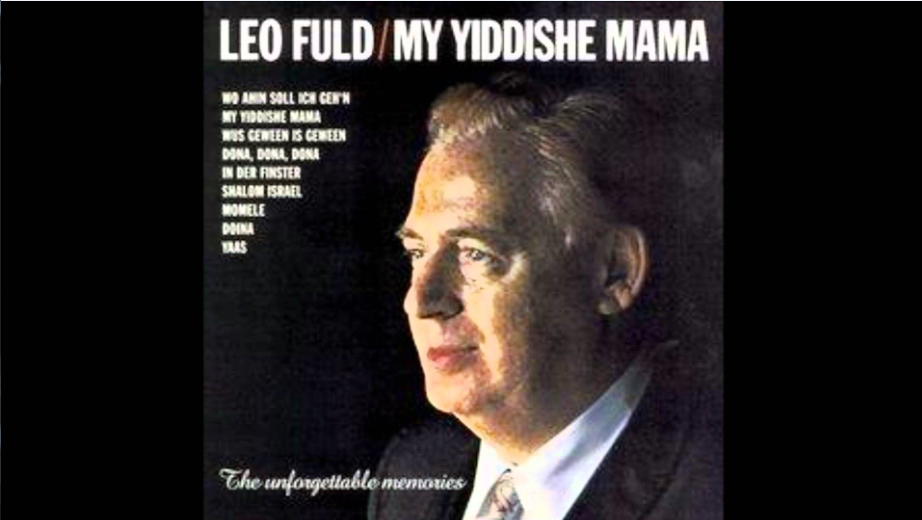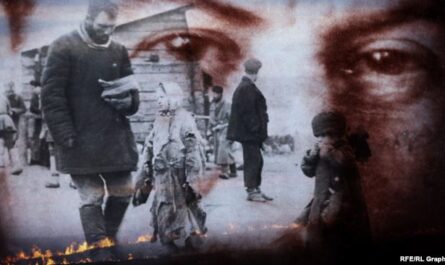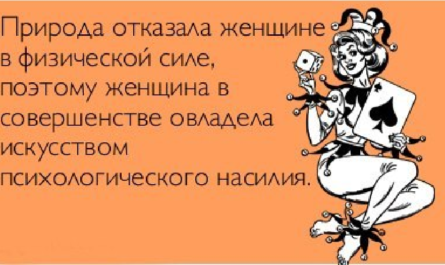
Дата загрузки: 18 дек. 2007 г.
l)Abraham Tuschinski- empresario- impresario
2) Jews in The Netherlands 1940s Westerbork
3) Mazel- New York 1940
4) Leo Fuld

"Abraham Icek Tuschinski (Brzeziny (near Łódź), May 14, 1886 – Auschwitz, September 17, 1942) was a Dutch businessman of Jewish-Polish descent who built the Tuschinski Theater, a famed cinema in Amsterdam.
While emigrating to the United States in 1903 Tuschinski decided to remain in Rotterdam. He found success as a movie theatre owner, opening his first four cinemas in 1911: the Thalia, Cinema Royal, Scala and Olympia. His most luxurious cinema in Rotterdam, the Grand Theater, opened in 1928.
His crowning achievement, the Tuschinski Theater, opened its doors in Amsterdam on October 28, 1921. The unique design of this building was a mix of three modern styles: Amsterdamse School, Art Deco and Jugendstil. The elaborate exterior and opulent, richly decorated interior were restored to their former glory in 1998-2002. Tuschinksy also opened another famed Amsterdam cinema, the Roxy Theater, in 1928.
When World War II broke out, Tuschinski lost all his cinemas in Rotterdam when the city was bombed by the Germans on May 14, 1940. On July 1, 1942, he was transported to the Westerbork concentration camp in the northeast of the Netherlands, and from there to Auschwitz, where he was killed."
Source: Wikipedia
Lazarus 'Leo' Fuld (Rotterdam, October 29, 1912 — Amsterdam, June 10, 1997) was a Dutch singer who specialised in Yiddish songs.
Leo Fuld was born as the third of ten children and grew up in a poor Jewish family. His father, Louis Fuld, was a merchant. Fuld's talent for singing showed at early age during services at the synagogue. Fuld was a good student and was given a scholarship at the Dutch Jewish Seminar. His parents expected young Leo to eventually become hazzan ('cantor'). At the age of sixteen Fuld was already leading services in provincial synagogues.
In 1932 he left for England to audition for the BBC and became the first Dutch singer behind the BBC microphone. His performance was noticed by Jack Hylton, leader of one of the most popular show bands of that time. At the age of 19 Leo joined for a tour, singing a miscellaneous repertoire: in addition to schlagers and swing classics he also sang traditional Yiddish songs.
Just before the outbreak of the Second World War Fuld left to perform in the United States. Leaving Europe may well have saved his life; of his entire family only Leo and one of his sisters survived the Nazis. The city in which they lived was destroyed in the Rotterdam Blitz.
After the war he stayed in the US, becoming the number one interpreter of Yiddish repertoire. Singing songs such as 'My Yidishe Mama', 'Ich hob Dich zu viel lieb', 'Doina' and 'Wo Ahin Soll Ich Geh'n' made him famous all over the world. He shared the stage with Édith Piaf and Frank Sinatra. Many of Fuld's songs are sung partly in Yiddish and partly in English. Sometimes he sang in Hebrew as well." Source: wikipedia
"During World War II, while Fuld was living in the U.S., he lost nearly his entire family. Until his death he was not able to discuss that topic with his remaining sister and nieces. In his simple apartment in Amsterdam, the singer was still writing songs and felt all but lonely: "I never get tired of my own company." "
"Leo Fuld decided to seek further fame and fortune abroad and made the first of his many recordings in Berlin's Odeon Studios in 1933. He further spread his wings and became the first Dutch singer to perform for BBC microphones with Jack Hylton's legendary big band. Clifford Fisher, the renowned New York impresario brought him to the Big Apple in 1936 where he performed on Broadway rubbing shoulders with stars of the day. His first visit lasted two years, but after his residence permit expired he returned to the Netherlands.
America kept pulling at his heart strings and he returned to New York in February 1940, a few months before the outbreak of war in Holland. Fuld spent the war years in New York. In 1945 he was to discover that one of his sisters was the sole family survivor of the Holocaust. He was so devastated he did not perform for three years.
Fuld resumed his career in 1948 in Amsterdam packing the famous Dutch movie theater Tuschinski singing a more wistful and melancholic brand of Yiddish song. Leo Fuld embarked on singing the Jewish version of the blues. This included his rendition of Wo Ahin Soll Ich Geh'n? (Where Can I Go?) which made him world famous and was a dramatic ode to the birth of the state of Israel.
The 1950s marked the high point in Fuld's international singing career. "
Еврей








